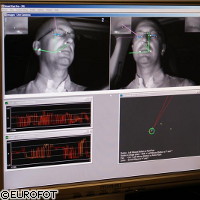EUROFOT to kick-start road safety systems tests
Road safety is high on the EU agenda and researchers are rising to the challenge of developing innovative in-vehicle technologies for industry and consumers. The EUROFOT ('European field operational test on active safety functions in vehicles') project, supported under the 'Information and Communication Technologies' (ICT) Thematic area of the EU's Seventh Framework Programme (FP7) with funding totalling almost EUR 14 million, is working to identify and coordinate in-field testing of new intelligent vehicle systems for better quality of European road traffic. The EUROFOT consortium, made up of 28 academia and industry actors, will scientifically test and evaluate the impact of 8 advanced driver assistance systems on safety, efficiency and driver comfort. Specifically, the partners are going to test lateral and longitudinal control systems that warn drivers of potential side- and front-end collisions. The partners pointed out that other advanced in-vehicle systems like the Curve speed warning and Fuel efficiency adviser, as well as the Human machine interaction with navigation systems, will also be evaluated in time. Starting in 2010 and lasting for about 1 year, more than 1,500 vehicles from different European car brands equipped with intelligent in-vehicle systems will drive around Europe in order to collect the necessary information. The test centres will be in Gothenburg (Sweden), Turin (Italy), Paris (France) and the German cities of Munich, Wolfsburg, Aachen-Cologne, Sindelfingen and Ingolstadt. 'This is the first of its kind, [a] large-scale field operational test that is carried out across brands in Europe,' said Aria Etemad, project coordinator of EUROFOT. For his part, ERTICO-ITS Europe's Maxime Flament said: 'Car dealers and fleet owners across Europe are currently recruiting the drivers that will take part in this experiment.' Responsible for the coordination of the various vehicle centres, Dr Flament added: 'At the same time, the vehicle operation centres are getting ready to prepare each vehicle for a one-year-long advanced data collection.' The partners said the project will increase understanding and provide indications based on scientific data about the real benefits of the intelligent in-vehicle systems that are currently available on the market. The results of the field test will also lead to improved and informed decision making, they added. Researchers participating in EUROFOT presented specific plans and methodology used for the project at the World Congress on Intelligent Transportation Systems in Stockholm, Sweden, in late September. The companies taking part in the EUROFOT project are Sweden's Volvo Cars and Volvo Trucks, Italy's Fiat, and Germany's Volkswagen, BMW, MAN and Audi. The non-profit organisation CEESAR (France) is also a participant. Volvo Cars, for instance, will provide 100 Volvo V70 and XC70 cars equipped with technology that monitors the driver's behaviour. 'This helps us to better understand the interaction between driver, car and the traffic environment. The interface between human and machine (HMI) is one of our key research areas,' said Jan Ivarsson, head of Safety Strategy at Volvo Cars. 'All instruments and functions must be easy to understand and use. It is vital that new information and support technology in our cars is designed and coordinated in the right way. The information must help the driver without stealing attention.'



